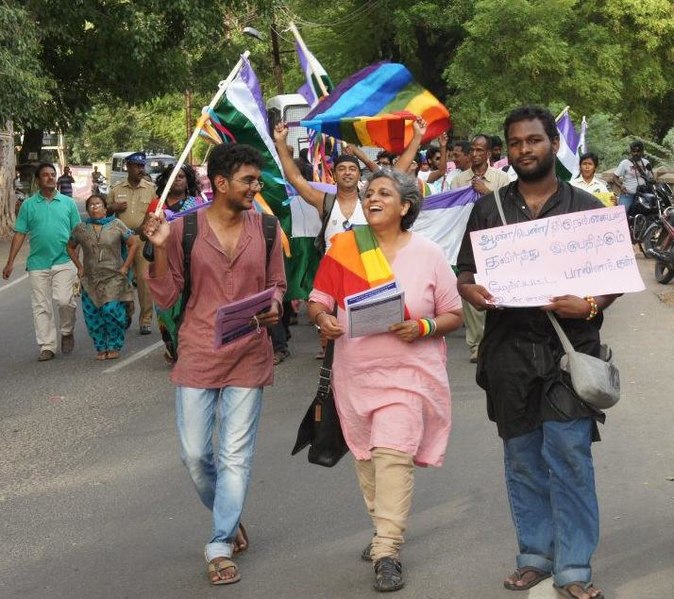Nguyen: A Step Others Should Follow
By Athlour [CC BY-SA 3.0 ], from Wikimedia Commons
September 17, 2018
“When all Americans are treated as equal, we are all more free,” said Former U.S. President, Barack Obama. These words rung throughout America following the legalization of same-sex marriage on June 26, 2015. Despite opposition, this was marked as a political hallmark – a “victory for America.” This is a road that other societies need to look down in order to make the right changes to their communities.
Flash forward to September 6, 2018, New Delhi – India’s Supreme Court unanimously struck down Section 377 of the Indian Penal Code, one of the world’s oldest bans on homosexuality, 27 years after the first attempt to repeal it. Citizens of India erupted in celebration as this decriminalization took place.
Since 1991, numerous factors have encouraged the acceptance of homosexuality and challenged the strong homophobia in India. Writings such as Less than Gay: A Citizen’s Report, a dossier compiled by Aids Bhedbhav Virodhi Andolan, India’s first AIDS activist movement, and “Gay Rights in India,” an article published in the Economic and Political Weekly shed light on the topic and brought in support. Additionally, the growth of LGBTQ+ representation in Bollywood movies and Indian television in the 21st century has raised awareness of gay rights issues. In addition to decriminalizing homosexuality, the justices also declared that gay Indians are to be granted with all the protections of the Constitution. Yet in light of all these seemingly progressive reforms, an important issue still lurks: these new rights do not include same-sex marriage in the country.
India, infamous for its brutal history of sexual abuse, polygamy, prostitution and more, has denied millions the right to love whomever they choose, something so simple yet so empowering. According to ABC News, some protesters of the repeal of Section 377 claim that by taking this step, the “mentally sick people” are unjustly being validated. The true “sick people” are, rather, those who choose to invalidate others’ individuality, those who shun their loved ones because of this and those who would rather remain ignorant and close-minded than become educated and respectful of people’s differences. Denying certain people the option to marry is discriminatory and divides cultures. As time progresses, the concept of “traditional marriage” has diminished, allowing society to be more readily accepting and responsive to the needs of the LGBTQ+ community.
Of the 195 countries in the world (196 including Taiwan), only 27 have legalized same-sex marriage. The amount of oppression that the LGBTQ+ community across the globe faces is indescribable. Imagine not only being unable to be with the person you love, but also being shunned because of it. Whether or not particular sexualities are the majority or minority, it all comes down to individual rights we have as human beings, one of which is the capacity to love. To deny one of this simple natural right is cruel and ignorant. As a society, we understand that it is immoral to discriminate against sex, race, religion and ethnicity. Why is sexual orientation any different?
After years of fighting, the decriminalization of homosexuality in India is a huge step towards equality, not just for the Indians, but the LGBTQ+ community as a whole. We must continue striving to unite and support one another. In the future, others should follow and make strides toward creating a more equal and inclusive society. Changing the law is one thing; changing our mindsets is another.









